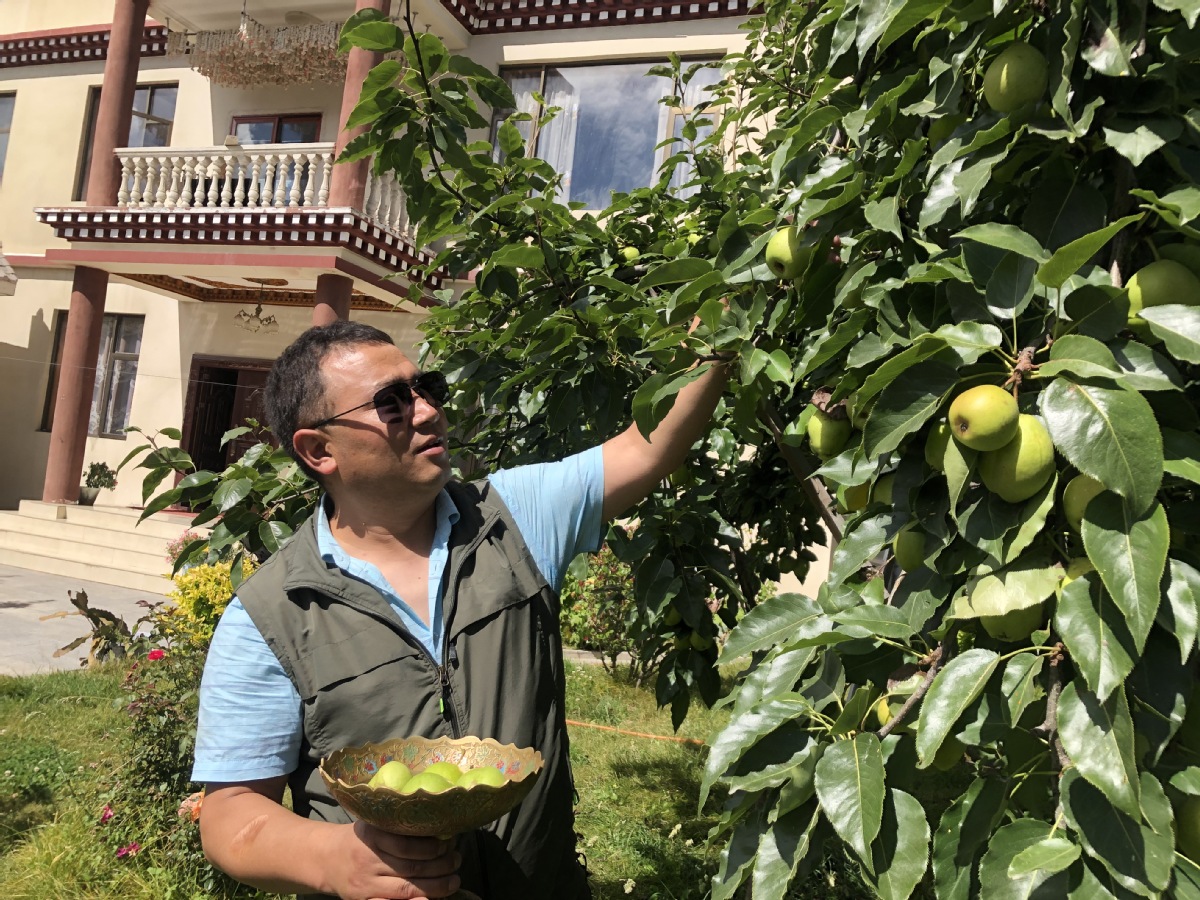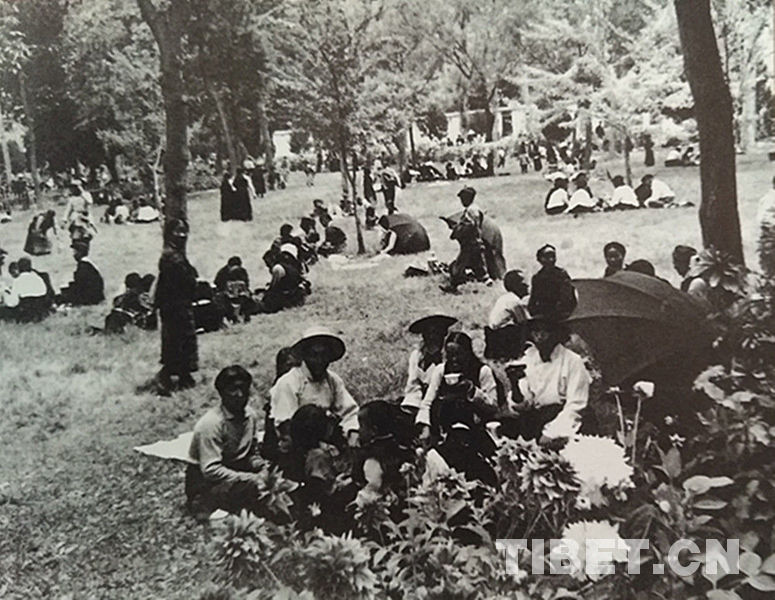Relocated Tibetan village marches ahead to prosperity
The rain is falling, the mist on the mountainside is palpable, and the village of Cha, in Nang county, Nyingchi city of Southwest China’s Tibet autonomous region, surrounded by the mountains looks greener after the rain.
Standing on the street, you can see the clean and tidy village road, neat and rowed houses and villagers rushing to the Tibetan incense company, farms and other places in the village to work.
But who would have thought that this Cha village, where every family lives a well-off life now, also experienced hardship 13 years ago.
"Our village is a relocated one, the previous Cha village, situated on a mountain that was 4,000 meters above sea level, was enormously affected by geological disasters and water source exhaustion," Lhapa Tsering, Party head of Cha village and the person responsible of local Tibetan incense company, said.
"The villagers didn't even have electricity and internet then. At that time, the villagers' income mainly came from farming and collecting cordyceps sinensis. Apart from that, there was no other income and no one went out to work," he said.
Since relocation in 2007, the village has encouraged local villagers to engage in collective economic practices. Tibetan incense company, goat farm cooperative and others have been established one after another, and Tibetan herb and goji berry have been vigorously developed. Under the leadership of Lhapa Tsering and other Party members, the rural collective economy has been strongly promoted.
Taking the Tibetan incense company as an example, it involves only simple physical work, and the village arranges 22 people from nine households in the village, the disabled and other villagers to take turn to work in the company. At present, workers can earn 12.5 yuan ($1.8) per hour, and there is also performance-based payment, making their annual average salary reach 10,400 yuan.
The villagers are more than satisfied with their lives right now, but Cha village never stopped its steps to explore more ways to increase the villagers' income and lead them to a happier and fulfilling life.
In recent years, the Party branch of the village has actively explored the online sales model, and in 2020, they also began the popular livestreaming broadcasts, during which the villagers introduced the Tibetan incense products and processing procedures while performing traditional shows for netizens, winning big praise.
In the first half of 2020 alone, the online sales volume of Tibetan medicinal incense products reached 343,000 yuan, far exceeding the level of the same period in previous years and accounting for more than 80 percent of this year's overall sales target. The sales volume of dried yak beef, cordyceps sinensis and other local specialties sold through livestreaming and other online platforms reached more than 200,000 yuan.
"Going forward, we want to make our rural collective enterprises bigger and stronger, and make them a brand, so as to lead villagers to live a better life with greater benefits," said Lhapa Tsering.
Tibet Stories

Ex-lumberman shows way to prosperity
Norbu Tsering led his fellow villagers to start a transportation business 20 years ago.

